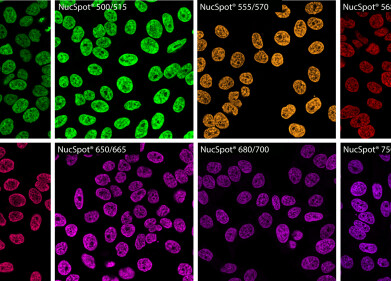Microscopy & Microtechniques
Scientists Find 'Bee Medicine' in Heather
Dec 01 2019
In a study that could help protect wild bee populations across the UK, a team of researchers has discovered that heather contains a natural "bumblebee medicine" that helps protect against a harmful parasite. Also known as Calluna vulgaris, heather is an iconic British plant found in heathlands and moorlands across the country. However, in the face of urban and agricultural development, vast fields of purple heather are becoming less common. As a result, wild bee populations are suffering. Environmental experts maintain that to support wild bee populations, protecting heather in the natural landscape is key.
"Just like us, pollinators can catch diseases that make them sick. Bees also face additional pressures from habitat destruction, pesticides and climate change," explains Dr Hauke Koch, co-researcher of the study. "While beekeepers can often help sick colonies of domesticated honeybees by, for example, directly treating against parasites, we can't help wild bees against disease threats in the same way. Our discovery shows, however, that a good way to help pollinators in the wild may be protecting key medicinal plants for them."
The medicinal properties of callunene
In a recent study conducted by Royal Botanic Gardens Kew and Royal Holloway at the University of London, a team of researchers found that nectar sourced from heather plants contains high levels of a chemical known as callunene, which is used by bumblebees to defend against a dangerous parasite that lives in the gut of the insects. While the medicine is also present in lime trees and strawberry plants, its much more concentrated in heather.
"Our work shows that heathlands may be even more valuable than previously thought by providing wild bumblebees with a natural medicinal nectar as protection against a major parasite," explains Dr Koch.
Study highlights importance of habitat conservation
The findings were published in the journal Current Biology, with Dr Koch and his team highlighting the importance of protecting the natural ecosystems that support British bumblebee populations. With habitat loss, agricultural pesticides and disease all intensifying, understanding the delicate environmental balances needed to protect bumblebees is more important than ever.
"Understanding which plants are needed to maintain a healthy balance between bees and their parasites can help us restore habitats that maximise bee health," said Prof Mark Brown from Royal Holloway.
Heather honey could hold medicinal benefits for humans
It's not just bumblebees that benefit from heather, with the team maintaining the plant is also an important source of nectar for other pollinators. Building on the research, Dr Koch says callunene is also found in heather honey, a finding that could warrant further research for possible benefits to humans.
Want to know more about how scientists explore the unique properties of plants? Don't miss 'Lasers Reveal the Secrets of Plant Cell Walls' which spotlights the latest research from the STFC’s Central Laser Facility (CLF).
Digital Edition
Lab Asia 31.6 Dec 2024
December 2024
Chromatography Articles - Sustainable chromatography: Embracing software for greener methods Mass Spectrometry & Spectroscopy Articles - Solving industry challenges for phosphorus containi...
View all digital editions
Events
Jan 22 2025 Tokyo, Japan
Jan 22 2025 Birmingham, UK
Jan 25 2025 San Diego, CA, USA
Jan 27 2025 Dubai, UAE
Jan 29 2025 Tokyo, Japan



















